In New Hampshire, an advisory council frequently reviews state policies related to homeschooling.
History
New Hampshire is in the northeastern United States and legalized homeschooling in 1990. It is the only state with an active advisory council that reviews the state’s homeschool policies.
Regulation
The New Hampshire Department of Education offers parents a home education webpage that outlines the state’s requirements. The state offers one option for homeschooling, and parents who wish to homeschool their students, ages 6 to 18, must meet several requirements. Parents must notify the principal, superintendent, or education commissioner within five days of beginning a homeschool program. It is advised that parents maintain a portfolio of student work for the state to review. Students must receive instruction in basic subjects. The regulation states that home education must be “provided, coordinated, and directed by the parents for his or her own child.” The parents must show their student’s progress by submitting a student portfolio of work for evaluation; by the student taking a nationally norm-referenced test, or by an evaluation by a certified teacher. These assessments and evaluation results may not be used to terminate homeschooling, but they may restrict access to public school offerings like courses and extracurriculars. There are no requirements for educators or instructional time. The state also has a Home Education Advisory Council.
New Hampshire provides broad access for all students to public school courses and extracurricular activities. The state funds these offerings, which removes barriers for families in any nonpublic schooling situation, including homeschoolers. The only limitations are that public school students cannot access offerings at other public schools, and no one can access offerings outside of their residential district. Access to special education services is unclear.
State Data
New Hampshire reports more than 20 years of homeschool participation data and disaggregated participation data, broken down by district. For example, nearly 4,200 students reported homeschooling in 2021-22, decreasing to 3,700 the following academic year.
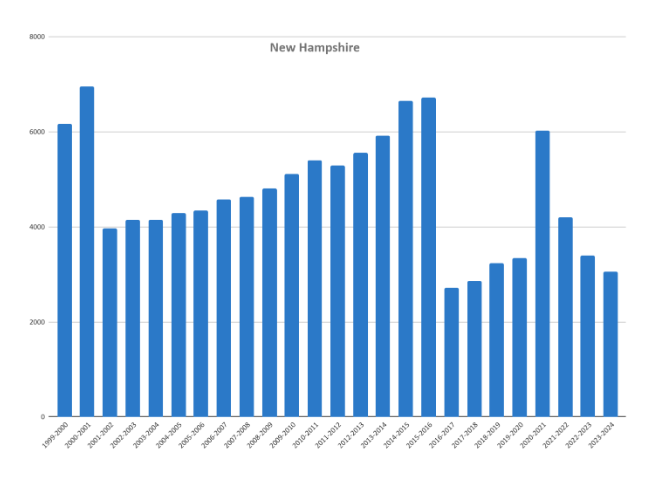
U.S. Census estimates indicate that around 3.4% of New Hampshire families homeschooled in the spring of 2020 and increased to 6.3% by the fall of 2020. This is much lower than the national average of 11.1% at the time. Based on U.S. Census data, our calculations indicate that about 6.21% of K-12 students in New Hampshire were homeschooled during the 2022-23 school year, and 6.34% during the 2023-24 school year. Due to survey changes, the data from 2020 reflects the percentage of households, while the data from following years reflects the percentage of students.
Cross-Sector Comparison
During the 2019-20 academic year, 1.7% of New Hampshire’s K-12 students were homeschooled. Homeschool participation in the state was much lower than the 9.0% of students attending private schools but only slightly lower than the 2.1% of students attending charter schools. In 2021-22, 2.1% of New Hampshire’s K-12 students were homeschooled. Private school attendance increased to 10.7%, while 2.5% of students attended charter schools.
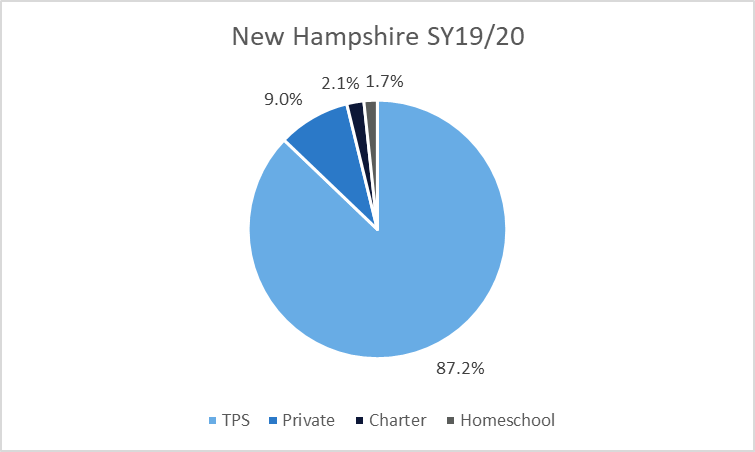
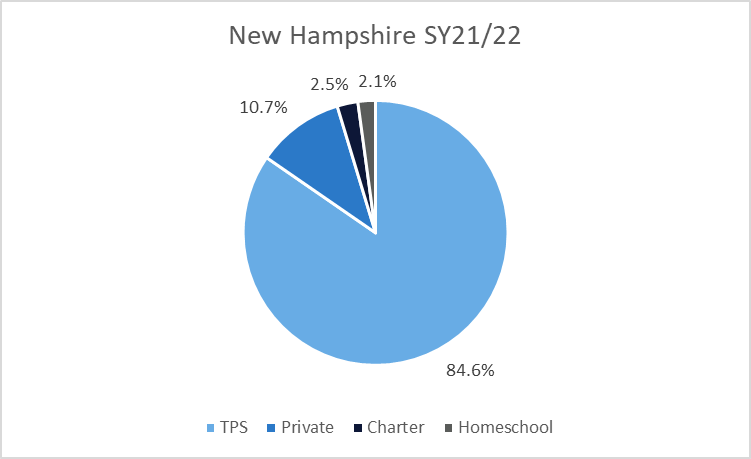
School Choice Context
In addition to homeschooling, parents in New Hampshire have multiple school choice options. These include enrollment in traditional public, private, magnet, charter, and virtual online schools. The state also allows inter- and intra-district choice. Further, New Hampshire has three funding options for nonpublic education. The Education Freedom Account Program offers students up to $4,700. Homeschool students are eligible if they meet the other requirements of the program.
Commentary
New Hampshire provides access and other support to families who choose a nonpublic education alternative, including those who homeschool. The state could further improve transparency, and better inform our understanding of homeschooling in the state and nation by including disaggregated reporting on homeschooled students by age. Currently, the state collects this information but does not report it publicly.
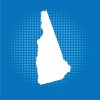
-
6.3% Families
Around 6.3% of families in New Hampshire homeschooled during the height of the pandemic (Fall 2020).
-
1990 Legalized
Homeschooling was legalized in 1990 in the state of New Hampshire.
-
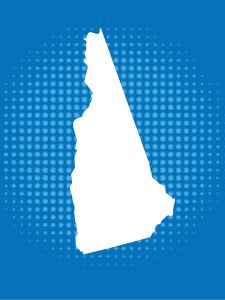
6.3% Families
Around 6.3% of families in New Hampshire homeschooled during the height of the pandemic (Fall 2020).
1990 Legalized
Homeschooling was legalized in 1990 in the state of New Hampshire.

Last updated March 2025.